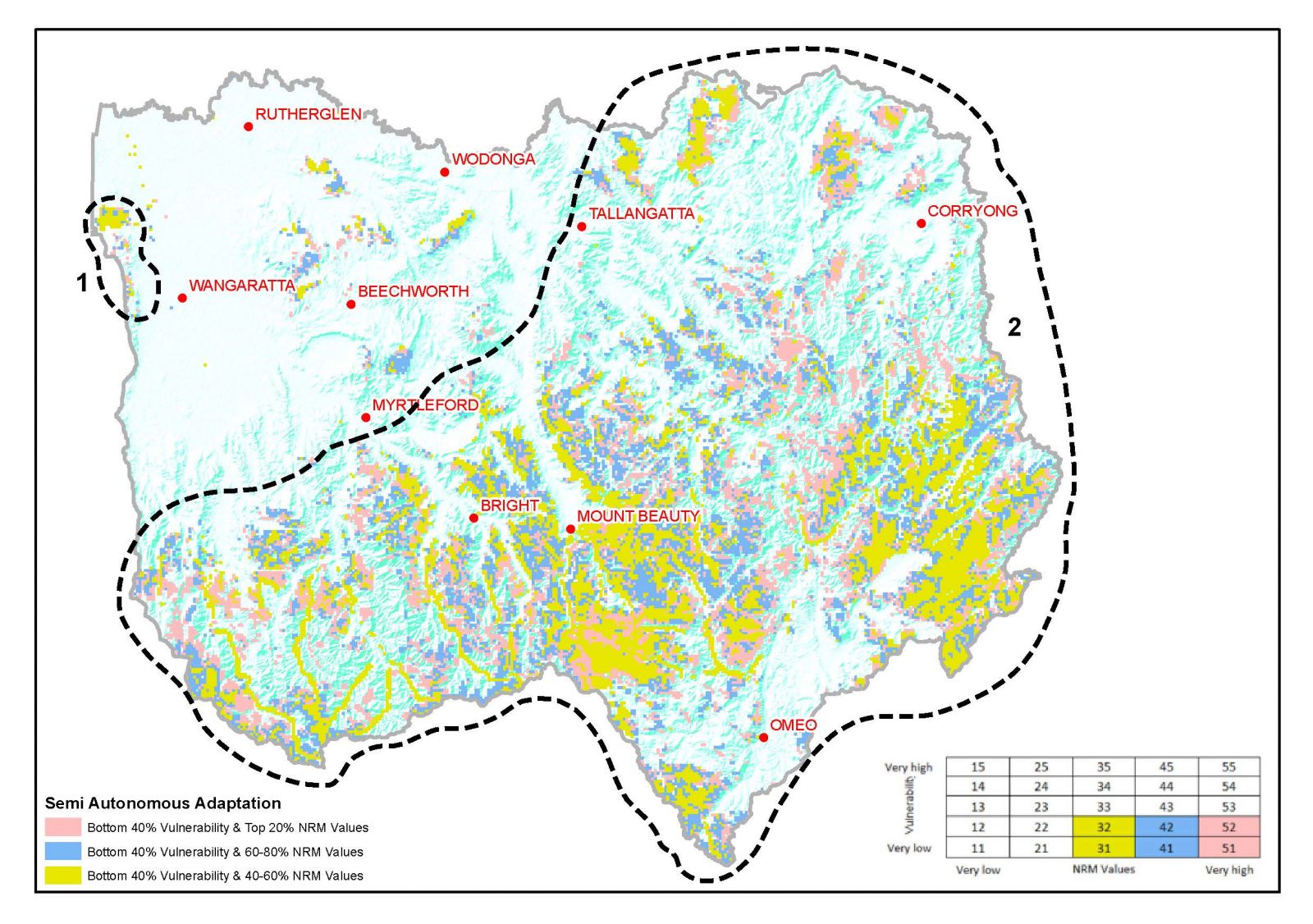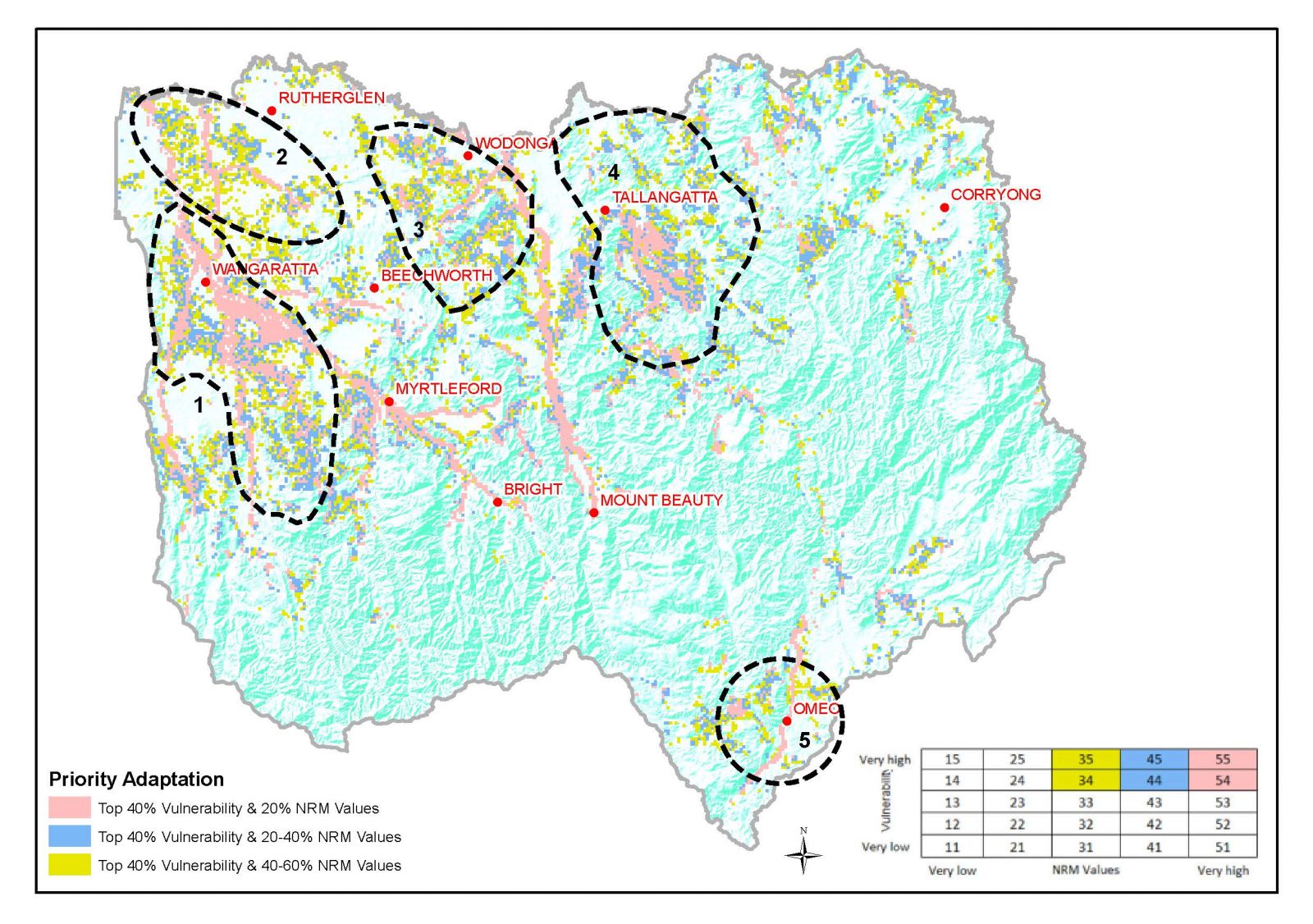Whole of Region
Research and development, planning and design, and knowledge exchange.
Research and Development
Climate change presents many challenges and opportunities for natural resource managers, including organisations, community groups and landholders. An effective response involves coordinated research and development across sectors and regions. Priority areas for research include modelling, mitigation, and adaptation. Management measures focus on development of resilient farming systems, enhanced strategies to cope with climate variability to increase capacity to cope with greater variability, trends in climate variables, and indirect impacts.
What We Can Work On
-
Review the performance of groundwater system modelling under future climate scenarios and progress implications ofthe review
-
Support research into understanding which ecological communities and associated local factors are the most susceptible/vulnerable to different climate futures
-
Collect regionally relevant landscape system information on climate change to inform future adaptation planning (including land use change) and build community awareness and connection to the landscape
Planning and Design
Improved planning and design can contribute significantly to addressing the impacts of climate change. Water corporations, local government, and CMAs can play important roles in scenario planning, contingency planning, purpose-designed infrastructure, and review of design standards for waterway works. Local government has responsibilities in planning, infrastructure, and the delivery of public services, and is an instrumental level of government in implementation and mitigation activities at the local and community level (including funding of climate change adaptation and mitigation strategies and plans).
What We Can Work On
-
Support the integration of natural resource condition and management considerations into local government planning for climate change
-
Integrate climate change projections intoregional level scenario planning for climate change mitigation and impacts (flood, fire, extended droughts, algal blooms)
-
Develop and progress water resourcescontingency planning to consider worst case future climate scenarios – e.g. planning for mega-droughts and extreme dry events outside’historical conditions
Knowledge Exchange
Climate change knowledge is complex and diverse. Knowledge exchange or sharing between and among various stakeholders – including researchers, policy makers, practitioners and communities – plays an important role in developing effective climate change policies, strategies and plans, and encouraging innovation. It enhances the ability of organisations, governments and communities to identify, plan and implement ways to mitigate and adapt to climate change. Knowledge exchange takes place at many levels, contributing to a range of outcomes:
-
Individual level – contributing to education, training and awareness-raising
-
Institutional level – fostering development of organisational cultures, competencies and resources
-
Systemic level – creating enabling environments through economic and regulatory policies and accountability frameworks
There is considerable opportunity for natural resource managers, landholders, and the broader community to exchange knowledge to plan for and respond to climate change in the North East.
What We Can Work On
-
Regional NRM practitioners initiate and participate in multi-NRM regional approaches to landscape management to share and grow human capital, knowledge and resources, and improve habitat connectivity and the adaptive capacity of ecological communities
-
Exchange knowledge with landholders and communities to support managing natural resources sustainably in a hotter, drier climate with changed seasonality


